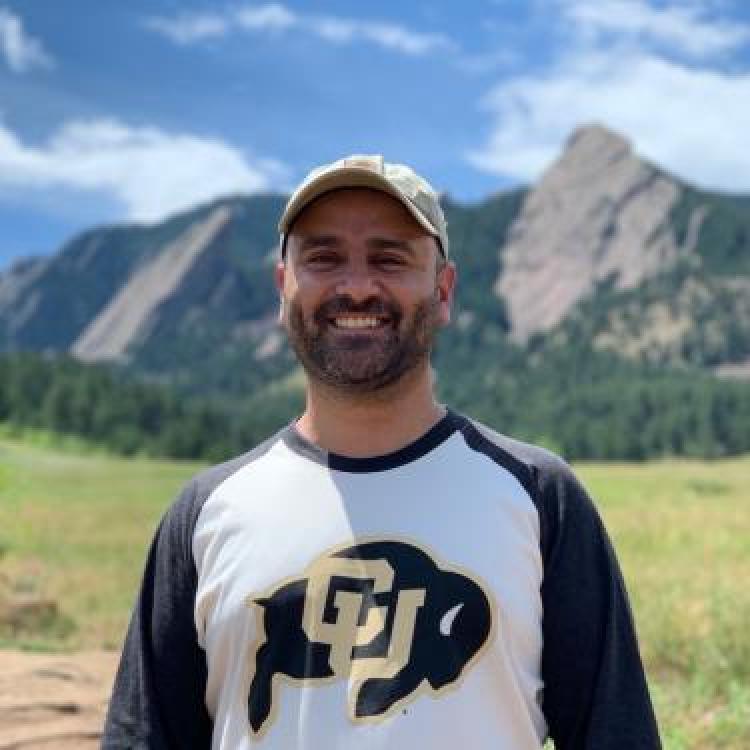CU Boulder biologist is named an early career fellow
Ecological Society of America recognizes Julian Resasco for his work to advance understanding of human impacts on biodiversity
Julian Resasco, a biologist at the University of Colorado Boulder, is one of 10 scientists selected as an early career fellow by the Ecological Society of America (ESA), the society announced this week.

Above: Julian Resasco. At the top of the page: Wildflowers. Photo by Cam James on Unsplash.
Resasco, an assistant professor in ecology and evolutionary biology (EBIO), was elected for “outstanding contributions toward advancing ecological understanding of human impacts on biodiversity and species interactions, including spatial and temporal dynamics and responses to landscape connectivity and fragmentation.”
He was also cited for his commitment to mentoring and promoting diversity and inclusion in ecology.
Early career fellows are members within eight years of completing their doctoral training who have advanced ecological knowledge and applications and show promise of continuing to make outstanding contributions to a wide range of fields served by the ESA. They are elected for five years.
Resasco earned his PhD in biology from the University of Florida in 2013. He served as a National Science Foundation postdoctoral fellow and a chancellor’s postdoctoral fellow at CU Boulder before being appointed assistant professor in 2019.
The unifying theme of Resasco’s research is to understand how human stressors to the environment affect biodiversity and how to mitigate those impacts. These stressors include changes to landscapes, climate change and species introductions.
Resasco often studies spatial and temporal dynamics and uses field studies at large spatial and long temporal scales to test theory and link ecological pattern with process.
Areas of research include landscape connectivity/corridors, habitat fragmentation, plant-pollinator networks, insect community ecology, stable isotope ecology, and conservation biology.
Resasco recently answered three questions about his work. Those questions and his answers follow:
Question: If you were to tell a group of high-school students why they should understand how humans affect biodiversity, what would you say?
Answer: Human impacts on earth and its ecosystems have resulted in an unprecedented biodiversity crisis. These impacts include habitat loss and fragmentation, climate change, and introduction of invasive species.
Q: Your laboratory website mentions your research into how to mitigate the impact of human stressors on biodiversity. How would you describe the prospects for widespread mitigation of these impacts? In other words, do things look at all hopeful?
A: Tackling the biodiversity crisis will require a huge, concerted commitment, but if we’re up to the challenge, a bright future is attainable. The futures of humans and other species on the planet are intertwined.
Creating a sustainable world would benefit both biodiversity and humanity. Ecologists play a critical role in meeting this challenge by informing society how ecosystems tick.
Q: What is your reaction to being named an early career fellow?
A: I’m proud to be part of the ESA, and getting this honor means a lot to me. I’m so grateful to have supportive mentors and colleagues, including my fellow faculty at CU Boulder in EBIO.
The Ecological Society of America, founded in 1915, is the world’s largest community of professional ecologists and a trusted source of ecological knowledge, committed to advancing the understanding of life on Earth.

